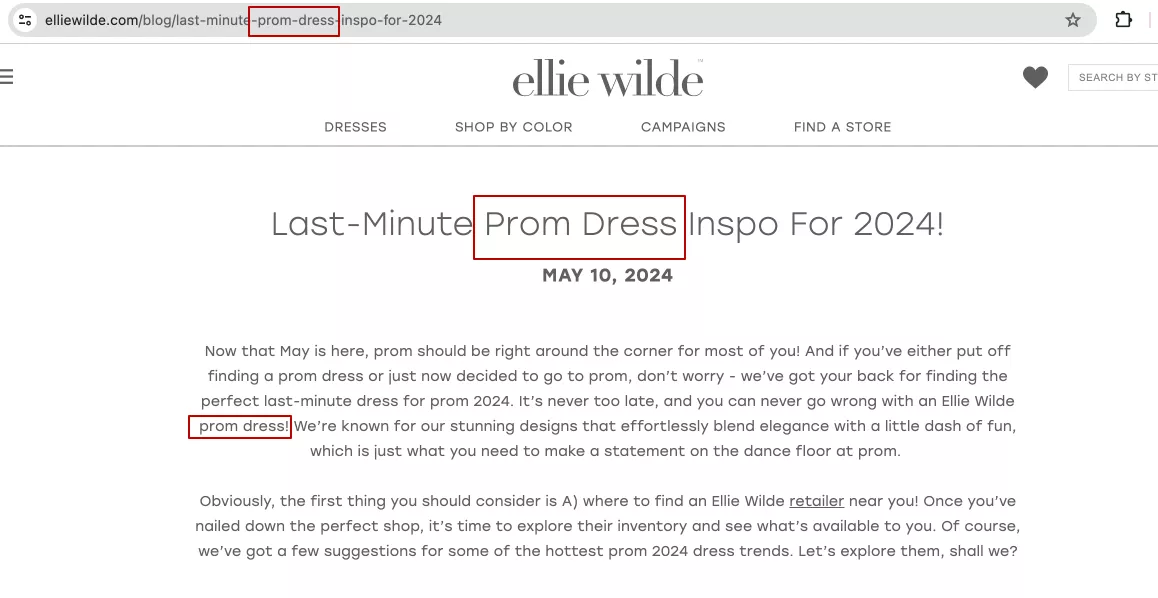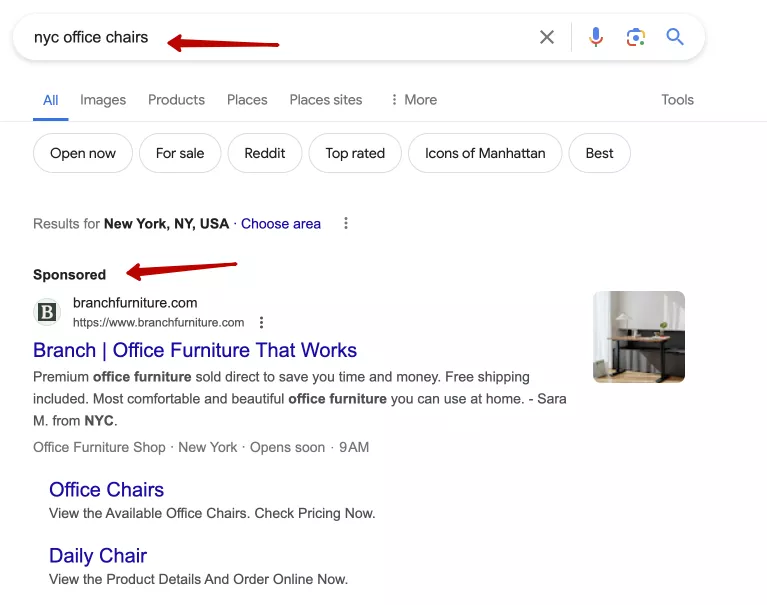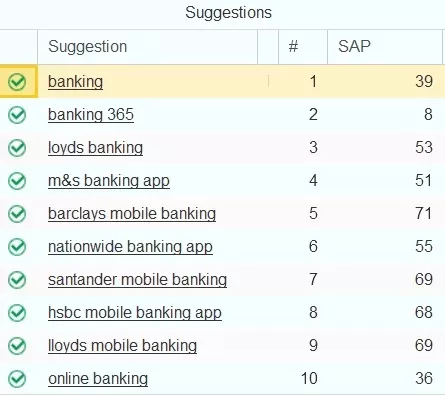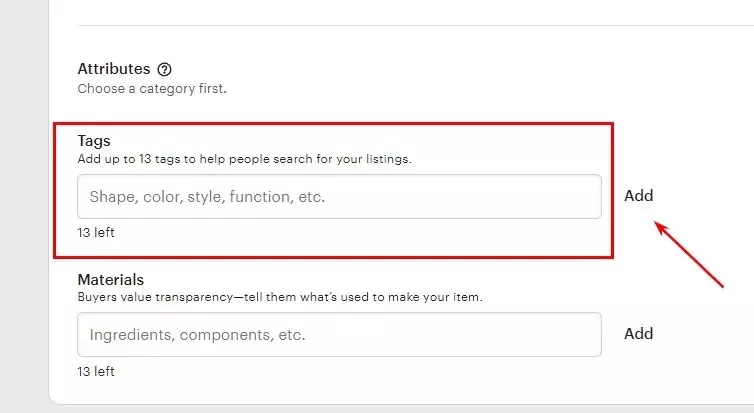What Are Keywords, and Why Is It Important to Use Them?
Keywords are words or phrases that describe the content of a web page, marketplace listing, App Store application, and so on. Users type these words or phrases into the search feed as queries. Search engine algorithms then correlate these queries with keywords on the web page or product listing and decide whether the resource is relevant to the user query.
In this article, I will talk about the different types of keywords you can use, how to find them, and why it is important to use them.
Why use keywords?
Essentially, keyword research allows you to understand what your target audience is looking for and what their intentions are. For example, if a user enters the query “buy sneakers New York,” it signals that they are ready to make a purchase.
- Keyword analysis is crucial for SEO. It allows you to create and adapt website content according to search queries, as well as improve your search engine rankings. Over 36% of SEO specialists spend most of their time on keyword research.
- Using the right keywords increases the chances that the content reaches the target audience.
- Keyword analysis provides valuable information about market trends.
Keywords are not limited to website content. It is important to use keywords in other digital channels, such as online ads, ASO, marketplace promotion, etc. This helps to increase CTR and traffic.
Where to use keywords
Adding relevant keywords will improve the performance of several marketing activities.
Keywords for SEO
According to SEJ, a whopping 91.5% of all search traffic goes to websites that appear on the first page of Google search results. You want your website to get there, and to do so, you need to use the most relevant keywords. Read more about this in our article on building a keyword list.
Keywords can be integrated in several ways:
- Organically add them to blogs, articles, and product descriptions on your website.
- Use them in H1, H2 headings, etc.
- Optimize URLs with keywords.
- Add keywords to the alternative text of images.
- Use keywords as anchor text for internal links.
- Get backlinks from other sites with the right keywords as anchor text.
Keywords “prom dress” in the URL and page title
Use these tools to find keywords for SEO:
- Google Keyword Planner
- Serpstat
- Ahrefs
- Ubersuggest
- Keyword Tool
- Keyword Eye
- Answer the Public
- Keyword Shitter
- Moz Keyword Explorer
Keywords for online advertising
For paid advertising campaigns, focus on keywords with high relevance and low competition. This will help you achieve better ad placement and higher click-through rates without overspending.
Keywords are used in different kinds of ads:
1. Google Ads to run ads in search results.
2. Display ads to run on the right websites.
3. Ad copy to increase relevance and get more clicks.
Case study: Netpeak specialists helped Kovalska Real Estate with a number of services to set up search advertising for apartments, and one of these was keyword research.
Before working with Netpeak, the company used broad and, therefore, expensive keywords in its search advertising campaigns – “buy an apartment,” “apartment in New York,” etc. Such advertising brought in a non-target audience, and the budget was poorly used.
Here is what our experts did to remedy the situation:
- We started by removing general and very expensive keywords.
- We then split the semantics into geolocation-based campaigns (street, city district, metro station) and groups with general and commercial keywords.
- We also set up advertising campaigns for competitive residential complexes.
Results: After we completed the above tasks, the number of conversions increased significantly by 75%.
Keywords for ASO
Using keywords in ASO improves an app’s visibility in app store search results. This leads to an increase in the number of downloads and user engagement. Users are more likely to open and install an app that ranks highly in search results.
Keywords should be used in:
- the name of the app;
- the description of the application;
- special keyword fields that are available in stores like the Apple App Store;
- in product titles and descriptions.
Case study: RadASO specialists helped optimize the Ampere Business Bank online banking application. To analyze keywords, they used their own Tech Boosted Solution tool. The semantic core included all the key queries by which competitors are ranked, their titles and sub-titles, and search tips.
Experts filtered key queries by:
- popularity;
- current position of the app;
- the best position of the app over time;
- number of competitors in the top ten;
- total number of apps in the search results;
- conversion rate, etc.
Then, they used these data to prioritize the inclusion of key queries in the metadata.
The results: The specialists successfully increased app impressions by 1615% and installs by 770%.
Keyword research tools for ASO: App Annie, Sensor Tower, Mobile Action, and TheTool.
Keywords for the marketplace
Keywords will help products appear in relevant search results on online marketplaces such as Amazon, eBay, and Etsy. They should be used in:
- product titles;
- product descriptions;
- lists that emphasize the key features and benefits of the product;
- special internal fields that are invisible to customers but are used for search ranking;
- tags.
Where to find keywords for marketplaces:
- Amazon: Jungle Scout, AMZScout, MerchantWords.
- eBay: Terapeak (eBay’s own tool) and Keyword Tool for eBay.
- Etsy: Marmalead and eRank (formerly EtsyRank).
Types of keywords
Keywords can be classified according to their characteristics and usage. Here are the main types.
By length
1. Short-tail keywords. Also known as head keywords, they consist of one or two words and are highly competitive.
Examples: “shoes,” “digital marketing.”
2. Long-tail keywords. Consisting of three or more words, they are more specific and less competitive. They have higher conversion rates due to their specificity.
Examples: “best running shoes for women,” “digital marketing strategy for small businesses.”
By search purpose
1. Informational keywords. They are used by users who are looking for specific information or answers to their questions. They often begin with the words “how,” “what,” “why,” etc.
Examples: “how to lose weight,” “what is blockchain.”
2. Transactional keywords. Used by users who intend to make a purchase, these keywords often include words such as “buy,” “discount,” and “coupon.”
Examples: “buy iPhone 12,” “cheap flights to Paris.”
3. Navigational keywords. They are entered by users who are looking for a specific company or a specific site.
Examples: “L’Oreal Paris,” “Instagram login.”
4. General keywords. When a person enters a query, but it is not clear from it what their intention is - to read information or make a purchase.
Examples: “prom dress,” “white car.”
5. For multimedia search. Used by those who are looking for a certain type of content on a topic: pictures, videos, infographics, etc.
Examples: “wedding hairstyle photo,” “Yamaha guitar video.”
Keyword metrics
It is important to monitor keyword metrics to determine their effectiveness and relevance. Here are the main metrics to pay attention to.
- Keyword Difficulty for SEO. This indicator assesses how difficult it will be to position a particular keyword in the organic search results. It helps assess a keyword’s competitiveness. Higher difficulty means more effort and resources are required to rank highly for that keyword.
- Cost Per Click (CPC) for PPC. This is the average price paid by an advertiser for a click on his ad caused by a certain keyword. It is useful for budgeting and determining the potential cost of PPC campaigns. A higher CPC indicates a more competitive and potentially more profitable keyword.
- Conversion Rate. The percentage of users who perform the desired action (for example, make a purchase or subscribe to a newsletter) after clicking on a link or ad. This metric measures the effectiveness of a keyword in driving valuable actions, not just traffic.
- Trend Analysis. This is the potential search volume for a keyword over time. It reveals seasonal trends and long-term changes in keyword popularity so you can plan content and marketing strategies accordingly.
Conclusions
- Content optimization, with the help of keywords, improves a website’s position in search results. Integrating keywords into website content, headings, URLs, alternative image text, and internal links will attract more traffic.
- Strategic use of keywords in paid advertising campaigns allows you to target specific audiences and increase the relevance of your ads.
- When promoting mobile apps, be sure to use keywords in titles, descriptions, and special fields. This will help increase an app’s visibility and downloads in online app stores.
- Use keywords in the titles, descriptions, and tags of products listed on marketplaces such as Amazon, eBay, and Etsy. This will improve product rankings in search results.
- Keywords can be categorized by length (short and long) and by search purpose (informational, navigational, transactional, and general research).
- It is important to monitor certain keyword metrics to evaluate their effectiveness. These are Keyword Difficulty, Cost Per Click, Conversion Rate, and Trend Analysis.
Related Articles
Display Advertising Effectiveness Analysis: A Comprehensive Approach to Measuring Its Impact
In this article, I will explain why you shouldn’t underestimate display advertising and how to analyze its impact using Google Analytics 4
Generative Engine Optimization: What Businesses Get From Ranking in SearchGPT
Companies that master SearchGPT SEO and generative engine optimization will capture high-intent traffic from users seeking direct, authoritative answers
From Generic to Iconic: 100 Statistics on Amazon Marketing for Fashion Brands
While traditional fashion retailers were still figuring out e-commerce, one company quietly revolutionized how U.S. consumers shop for everything from workout gear to wedding dresses







